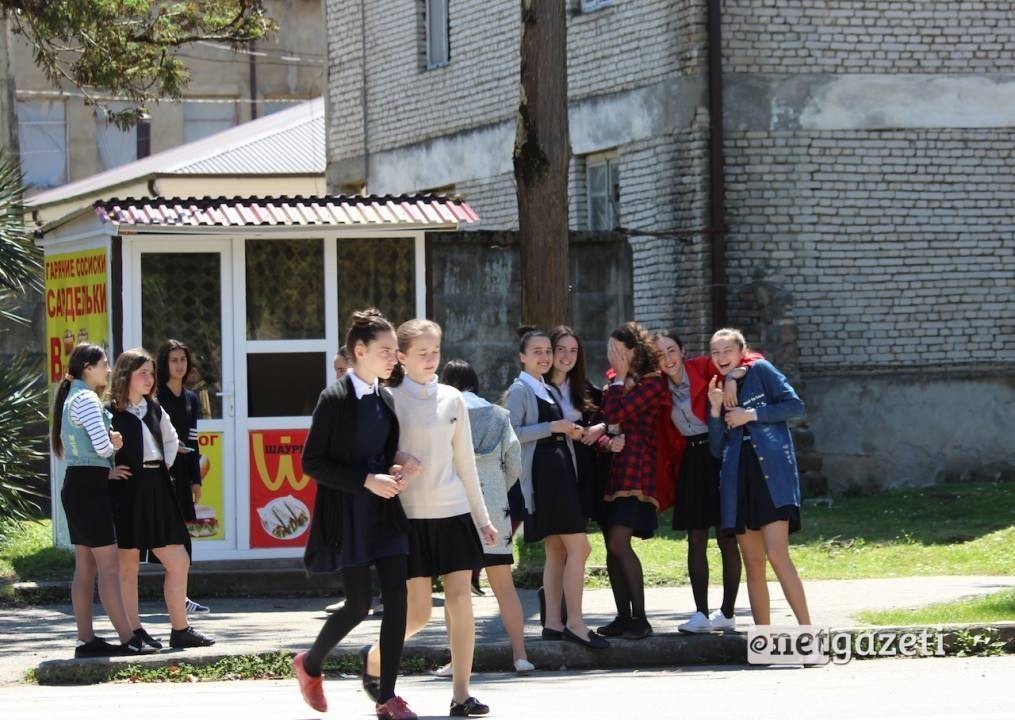საერთო ცხელი ხაზი +995 577 07 05 63


Photo credit: Netgazeti
The ban on teaching Georgian in schools in the Gali district by the de facto government of Abkhazia is another discriminatory decision against ethnic Georgians, and appears to be a continuation of the policy of cultural assimilation. The Social Justice Center calls on the Georgian authorities to make more effective use of the political, diplomatic and legal mechanisms and resources at their disposal to promote the education and cultural rights of ethnic Georgians living in Gali.
On September 12, 2021, the decision of the de facto Ministry of Education of Abkhazia became widely known, according to which the teaching of the Georgian language in the schools of Gali district was completely banned. [1] This decision effectively completed the process, which began years earlier, of the assimilation and Russification of Gali schools in the Abkhazian education system.
The right of ethnic Georgians living in Gali to receive education in their own language is restricted as a result of deliberate discriminatory policies by local authorities. Since 1993, the Gali district has been divided into so-called “upper” and “lower” zones; the first grades of Russian-speaking classes were introduced in the upper zone, and once the grades taught in Georgian had graduated, all teaching in these schools was carried out in Russian. In these schools of the “upper zone” of Gali, the Georgian language was taught only in one subject, and all other subjects were taught in Russian. [2] In the lower zone, from the school year 2015-2016, teaching in Russian was established from the first to the fourth grade, which also meant implementing teaching in Russian for all subsequent first grade classes. [3] In September of this year, a decision was made by the de facto Ministry of Education of Abkhazia to completely abolish Georgian language teaching in the Gali district. [4] It should be noted that teaching in Georgian is prohibited in all preschools in the Gali district. The de facto government of Abkhazia has been putting pressure on Georgian teachers in the Gali district for years, even in some cases by dismissing them from their jobs. [5] Banning Georgian students from learning their mother tongue in the Gali district is a problem not only because of its discriminatory and assimilative nature, but also in terms of the development of students and young people. Schoolchildren, because they speak Meghrelian or Georgian at home, are taught all subjects in Russian at school and learn Abkhazian along with foreign languages, cannot speak any language fluently. Starting to learn Russian, which is foreign to them, from the very first grade, will have a negative impact on the process of acquiring their education and on their learning outcomes. There are not even sufficient human resources for teaching Russian in Gali schools, which will affect the quality of education overall and severely affect the knowledge and social development opportunities for the local youth.
It is unfortunate that despite years of efforts, the Georgian government has failed to prevent the ongoing cultural assimilation process and insure its risks even by creating alternative sustainable and effective educational resources locally. It is important that the Georgian government still helps schools in the Gali district, by the provision of educational courses, financial aid and textbooks for teachers. Georgia is actively raising the issue of providing education in one’s own mother tongue in Gali at the Geneva International Discussions. However, the current state of general education has a severe impact on the education of ethnic Georgians living in Gali as a whole, and it requires an increase of efforts on the part of the Georgian authorities.
The European Court of Human Rights has established case law related to the realization of the right to education in conflict regions. Among them, in cases such as Cyprus v. Turkey, Catan and others v. Moldova and Russia, which relate to violations of the right to education, the European Court has established the legal responsibility of the states exercising effective control over the respective territories. In our case, too, Russia’s legal responsibility for instances of human rights violations in Abkhazia is obvious. However, this data also imposes on the de jure state the responsibility to fulfil its positive obligations, which means using all the mechanisms and resources at its disposal to restore proper jurisdiction over the territory and also to influence the prevention of human rights violations.
In view of all the above mentioned,
It is essential that the Georgian authorities use all diplomatic, political and legal mechanisms to protect ethnic Georgians' right to education in their mother tongue, including conducting active negotiations with the de facto government.
At the same time, it is important for the Government of Georgia to develop alternative formats and programs for teaching the Georgian language and other subjects to young people living in Gali, and for this purpose, to mobilize adequate educational, technical and library resources for the region.
The website accessibility instruction